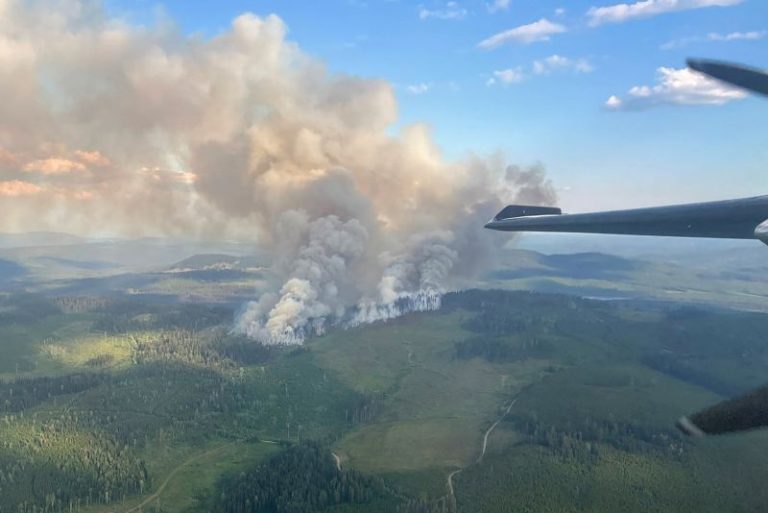Smoke from more than 1,000 wildfires burning across Canada has wafted over the northern US, bringing poor air quality and pollution that threaten residents’ health to northern US cities including Chicago, Illinois, and Minneapolis, Minnesota.
Chicago, Minneapolis and Detroit, Michigan, are now among at least three major US cities that are ranked in the top 20 most polluted cities in the world, according to global pollution tracker IQAir.
The smoke has drifted over the Great Lakes region, in particular, as about 1,090 active fires blaze throughout Canada, more than 670 of which are considered “out of control,” according to the Canadian Interagency Forest Fire Centre. That’s up from more than 880 fires there last week.
The bulk of the country’s wildfires are burning in British Columbia, where more than 460 fires are ongoing, the agency reports.
In the US, the National Weather Service (NWS) has issued air quality alerts for millions of people across Michigan and parts of Minnesota, Wisconsin, Illinois and Indiana.
The blanket of hazy skies follows a belt of Canadian wildfire smoke which stretched across the US last week, triggering air quality alerts for more than a dozen states from Montana to Vermont, with some smoke reaching as far South as Alabama.
The smoke is expected to shift eastward through the Great Lakes region through Tuesday and disperse by Wednesday – just as the upper Midwest is forecast to see some of its hottest temperatures so far this year. Minneapolis could reach 100° and Chicago will be in the upper 90s.
The EPA in Illinois has declared an “Air Pollution Action Day” through Tuesday due to the “persistent” wildfire smoke causing elevated air pollution in the region. Similar advisories have been declares in Michigan and Wisconsin.
The city is recommending that those with chronic respiratory issues limit their activities outdoors and is advising against strenuous activity for children, teens, seniors, people with heart or lung disease, and pregnant people.
“All Chicagoans may also consider wearing masks, limiting their outdoor exposure, moving activities indoors, running air purifiers, and closing windows,” the city said in a release Monday.
Wildfire smoke is packed with tiny pollutants – known as particulate matter – that can infiltrate the lungs and blood stream if inhaled. Particulate matter can commonly cause difficulty breathing and eye and throat irritation, but has also been linked to more serious long-term health issues such as lung cancer, according to the US Centers for Disease Control and Prevention.
Canada suffers worst fire season on record
The US is likely to see the downwind effects of Canada’s prolonged wildfires as the country continues to experience its worst fire season on record.
Almost 29 million acres of Canadian land have been scorched so far this year, according to the national fire center. Smoke from the blazes this summer have so far touched the American South and traveled across the Atlantic and into Europe.
The crisis has elicited a flood of international support, as fire and emergency response personnel have deployed to the country from nations including the US, Australia and Brazil. At least two Canadian firefighters have died while battling the flames.
Hard-hit British Columbia will receive federal assistance from the Canadian Armed Forces, Public Safety Canada announced last week.
Hundreds of British Columbia’s fires have been ignited by lightning strikes from thunderstorms, according to the British Columbia Wildfire Service. Some of those thunderstorms were “dry,” producing insufficient amounts of rain to help quench any fires – a dangerous prospect in a province experiencing severe drought.
As the human-driven climate crisis intensifies, scientists expect wildfire seasons will increase in severity, especially as droughts and heat become more common and more severe across the world.

